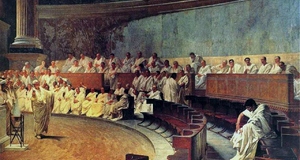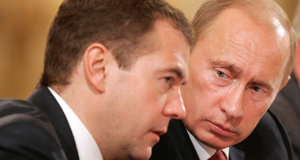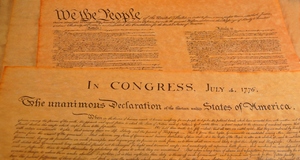Canadian Democracy in Theory and Practice: The Roots of Semi-Representative Liberalism
By
2016, Vol. 8 No. 10 | pg. 2/2 | « This is obviously to say nothing of the fact that participation of the Indigenous population within this initial formulation was non-existent, setting the stage for a continuing pattern of disregard and active hostility towards the wellness and meaningful political participation of First Nations in Canada (Madokoro, 2014). Though registered Indians did gain the right to vote without losing status in Canadian federal elections in 1960, Indigenous peoples still are not elected to provincial and federal legislatures in numbers reflective of their population (MacDonald, 2013). Furthermore, the nature of First Nations government in Canada rests at an uneasy juncture of overlapping sovereignty claims and the relationship between First Nations and the federal government which marks Indigenous persons, even off-reserve, as being apart from Canadian society in general (Rollo, 2014). This form of exclusion belies the representative claims of the system in which it takes place, as it stifles certain voice within bodies (the House of Commons and provincial legislatures) which are theoretically democratic. This stifling leads to a lack of knowledge amongst the rest of the population which contributes in no small part to the ongoing economic dispossession of First Nations (Raptis & Bowker, 2010). Canada's increasingly diverse and multicultural social nature is also an area wherein ostensibly democratic structures have far to go in terms of incorporation (Leung, 2011). Aside from the under-representation of visible minorities within the political realm, there is a difficulty of incorporating a wide variety of cultural backgrounds with varying definitions and forms of democracy into a truly representative system (Bilodeau, 2014). The fact that the basic form of the political system in Canada has changed remarkably little over time, despite the expansion of suffrage rights and the injection of greater American-style judicial review tempering parliamentary sovereignty, despite the increasing presence of other cultural perspectives within Canadian society, can be seem as a failure to adapt and consult (Studlar & Christensen, 2006). This can also be seen as akin to a statement of the supremacy of one particular vision of inclusive governance at the expense of all others. Given the ongoing failures of this system in terms of inclusivity of the voices of both ethnic minorities and of women (Ogrodnick, 2010), this is a claim deserving of great scrutiny.To briefly conclude, Edmund Burke, often noted as the father of modern Western political conservativism, once stated in a speech to the electorate in Bristol, England that that “your representative owes you, not his industry only, but his judgment; and he betrays, instead of serving you, if he sacrifices it to your opinion” (1777). An elected representative, therefore, is not simply a vehicle for the expression of the wishes of their electors, but also must exercise their own prudential judgement in voting on legislation and other matters, with the voters having the ability to judge their abilities at the subsequent poll. This claim of the utility of representative, as opposed to direct, democracy, however, comes into further scrutiny if viewed in the light of the criticsms previously outlined in this paper and in the relative power differentials between the actors. The act of representation makes an assumption that both the represented and the representor share common interests and characteristics which bind them. To say the least, the veracity of this shared interest is highly questionable, not only on grounds of underepresentation as inherent to the first-past-the-post the electoral system, but on the deeper, more inherent levels of social location. The claim that one person not sharing the location, background and experiences of another can effectively represent that person ignores the domination inherent in the historical relationship they share. It is in this way that the nature of Canada's character as a democracy has, from its inception, been beset by contradictions and major deficiencies in representation which show little sign of abetting in the forseeable future. The status quo unduly privileges certain interests and groups to the exclusion of other voices and relies on a narrative of general interest as represented through the legislature which obscures genuine social conflicts on a number of vectors. In part, this is simply the cost a citizenry pays for the outsourcing of its governance, by not demanding a general referendum on each and every pubic policy matter, we do surrender our effective judgement on these matters to some degree. The truly democratic nation would require a degree of general enthusiam and dedication for the tasks of policy-making that seems altogether lacking in the present moment. Such a system would also run the risk of a small group of citizens being able to enforce its agenda by virtue of sheer dedication rather than popular will, thus introducing a situation little better than the status quo. There are certainly ways to make our system more democratic, proportional representation could be introduced instead of first-past-the-post, for instance, and efforts have been made by some Members of Paraliment to devolve more power back to legislature from the executive (Globe and Mail Editorial Board, 2014), but these are ultimately tinkering around the edges of the wider issue. At a certain point, a question falls before us: do we, as citizens, wish to be governed, or to do the governing? If we resolve in favour of the obviously more democratic, latter response, we should then be willing to undertake the tasks inherent to governing, despite their difficulty. Experiments in this vein have taken place with participatory budgeting in certain communities of Brazil (Spada, 2009) and sections of Greece's emerging social economy in the wake of its recent hardships have embraced similar models (Rakopoulos, 2014) which may point a way forward. Ultimately, if we wish Canada to be truly democractic, it will take a recognition and mindset that, in the final estimation, politics and policy are quite simply tasks too important to be left to politicans and policy-makers. ReferencesAkirav, O., Cox, G. W. & McCubbins, M. D. (2010). Agenda control in the Israeli Knesset during Ariel Sharon's second government. Journal Of Legislative Studies, 16(2), 251-267. doi:10.1080/13572331003740149 Bilodeau, A. (2014). Is democracy the only game in town? Tension between immigrants' democratic desires and authoritarian imprints. Democratization, 21(2), 359-381. doi: 10.1080/13510347.2012.712515 Burke, E. (1777). The political tracts and speeches of Edmund Burke, Esq. Member of Parliament for the city of Bristol. Dublin: Printed for W. Whitestone, W. Sleater, J. Williams, W. Wilson, W. Colles. Cohen, A. & Susser, B. (2010). Stability in the Haredi camp and upheavals in nationalist Zionism: an analysis of the religious parties in the 2009 elections. Israel Affairs, 16(1), 82-104. doi:10.1080/13537120903462027 Couture, L. (2014). Proportional representation: Redeeming the democratic deficit. Innovation Journal, 19(1), 1-12. Crouch, C. (2014). Putting Neoliberalism in its Place. Political Quarterly, 85(2), 114. doi:10.1111/1467-923X.12077/abstract Dupuis-Deri, F. (2009). History of the word "democracy" in Canada and Quebec: Political analysis of rhetorical strategies. Canadian Journal Of Political Science-Revue Canadienne De Science Politique, 42(2), 321-343. Froese-Germain, B. (2013). Labour Rights, Inequality and Democracy. Our Schools / Our Selves, 23(1), 93 – 96. Globe and Mail Editorial Board. (2014, September 11). Chong's watered-down Reform Act will still float. Retrieved March 21, 2015, from http://www.theglobeandmail.com/globe-debate/editorials/chongs-watered-down-reform-act-will-still-float/article20565782/ Greene, I., Baar, C., & McCormick, P. (1997). Law, courts and democracy in Canada. International Social Science Journal,49 (2), 225 – 240 Grenier, E. (2012, May 10). Poll Yields Clues To Why Tories Push Free Trade. Retrieved March 21, 2015, from http://www.huffingtonpost.ca/2012/10/05/free-trade-poll-canada-nafta_n_1942357.html Hellström, A. & Hervik, P. (2014). Feeding the beast: Nourishing nativist appeals in Sweden and in Denmark. Journal Of International Migration & Integration, 15(3), 449-467. doi:10.1007/s12134-013-0293-5 Hinton, D. L. (2009). The stance on the cluster munitions ban U.S. philosophy explained. Joint Force Quarterly, (54). 103 Hurtig, M. (1994). The spirit of Canada: reclaiming the soul of Canadian democracy. The Canadian Forum, 73 (833), 18 – 23. Katz, R. S. (2011). Democracy as a cause of electoral reform: jurisprudence and electoral change in Canada. West European Politics, 34(3), 587 – 606. LeDuc, L. (2011). Electoral reform and direct democracy in Canada: when citizens become involved. West European Politics, 34(3), 551 – 567. Leung, H. (2011). Canadian multiculturalism in the 21st century: Emerging challenges and debates. Canadian Ethnic Studies, 43/44(3 - 1), 19-33. MacDonald, D. B. (2013). Reconciliation after genocide in Canada. Alternative: An International Journal Of Indigenous Peoples, 9(1), 60-73. Madokoro, L. (2014). From settler colonialism to the age of migration: Archives and the renewal of democracy in Canada. Archivaria, 78, 153-160. Merriam-Webster. (n.d.). Democracy - defintion from Merriam-Webster Online. Retrieved February 26, 2015, from http://www.merriam-webster.com/dictionary/democracy Milner, H. (2013). Social media politics: Are the new movements, from Quebec to Wall Street, compatible with representative democracy?. Inroads: A Journal Of Opinion, 32 , 25 – 40. Nerbas, D. (2013). Managing democracy, defending capitalism: Gilbert E. Jackson, the Canadian Committee on Industrial Reconstruction, and the changing form of elite politics in Canada. Social History, 46(1), 173-204. Ogrodnick, M. (2010). Feminism, democracy, and the limits of diversity: Reflections from Canada. North Dakota Quarterly, 77(1), 32-50. Potter, J. D. & Tavits, M. (2015). The Impact of Campaign Finance Laws on Party Competition. British Journal Of Political Science, 45(1), 73-95. doi: 10.1017/S0007123413000227 Rakopoulos, T. (2014). The crisis seen from below, within, and against: From solidarity economy to food distribution cooperatives in Greece. Dialectical Anthropology, (2),189. Raptis, H. & Bowker, S. (2010). Maintaining the illusion of democracy: Policy-Making and Aboriginal education in Canada, 1946-1948. Canadian Journal of Educational Administration and Policy, 102, 1-21. Richards, L. (2013). Fallout Suits and Human Rights: Disrupting the Technocratic Narrative. Peace & Change, 38(1), 56 - 84. Rollo, T. (2014). Mandates of the state: Canadian sovereignty, democracy, and Indigenous claims. Canadian Journal Of Law & Jurisprudence, 27(1), 225 – 238. Simon, Z. (2014, July 28). Orban says he seeks to end liberal democracy in Hungary. Retrieved March 17, 2015, from http://www.bloomberg.com/news/articles/2014-07-28/orban-says-he-seeks-to-end-liberal-democracy-in-hungary Spada, P. (2009). Participatory budgeting in Brazil: Contestation, cooperation, and accountability. Latin American Politics And Society, (4), 183. Strate, J. M. & Sellars, J. R. (1993). Elite opinion on Canada-U.S. trade liberalization. American Review Of Canadian Studies, 23(4), 583 - 605 Studlar, D. T., & Christensen, K. (2006). Is Canada a Westminster or Consensus Democracy? A Brief Analysis. PS: Political Science and Politics, 39 (4). 837 – 841. Thomas, P. E., Loewen, P. J. & Mackenzie, M. K. (2013). Fair isn't always equal: constituency population and the quality of representation in Canada. Canadian Journal Of Political Science, 46(2), 273 - 294. doi: 10.1017/S0008423913000231 Waltman, M. (2010). Rethinking democracy: Legal challenges to pornography and sex inequality in Canada and the United States. Political Research Quarterly, 63 (1). 218 – 237. Weinrib, L. (2007). 'This New Democracy ...': Justice Iacobucci and Canada's Rights Revolution. The University of Toronto Law Journal, 57(2). 399 – 413. Wheeldon, J. & McBrien, A. (2014). (Mis)Representing the 2008 prorogation: Agendas, frames, and debates in Canada's mediacracy. Canadian Journal Of Communication, 39(3), 431-448. Zuberi, D., & Ptashnick, M. (2011). The deleterious consequences of privatization and outsourcing for hospital support work: The experiences of contracted-out hospital cleaners and dietary aids in Vancouver, Canada.Social Science & Medicine, 72(6) 907 - 911. Suggested Reading from Inquiries Journal
Inquiries Journal provides undergraduate and graduate students around the world a platform for the wide dissemination of academic work over a range of core disciplines. Representing the work of students from hundreds of institutions around the globe, Inquiries Journal's large database of academic articles is completely free. Learn more | Blog | Submit Latest in Political Science |


















